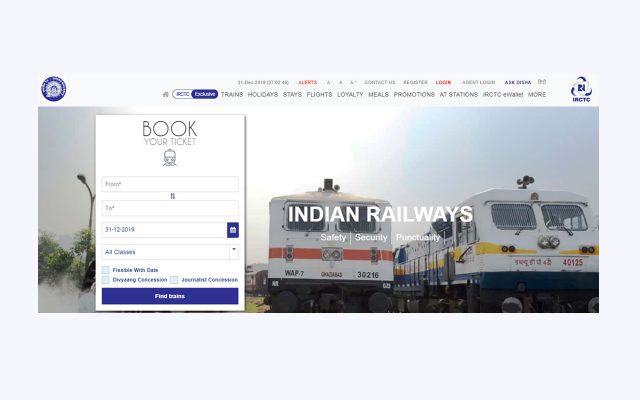How a BBA in Logistics Can Take Your Career to the Next Level

Logistics is a critical component of many industries, from manufacturing and retail to healthcare and government. Effective logistics management can help businesses reduce costs, improve efficiency, and enhance customer satisfaction. As a result, demand for skilled logistics professionals continues to grow, and a BBA in logistics can be an excellent way to start or advance your career in this dynamic and exciting field.
In this article, we will explore how a BBA in logistics can take your career to the next level. We will discuss the skills and knowledge that you can gain from a BBA program in logistics, as well as the career opportunities that are available to graduates. We will also provide some tips on how to choose the right BBA program in logistics for your career goals and interests.
Skills and Knowledge You Can Gain from a BBA in Logistics
A BBA in logistics can provide you with a range of skills and knowledge that are essential for success in this field. Some of the key areas of focus in a BBA program in logistics may include:
1. Business Principles: A BBA in logistics will provide you with a strong foundation in business principles, including accounting, finance, marketing, and management. These skills are essential for understanding the financial and strategic aspects of logistics operations.
2. Supply Chain Management: A BBA in logistics will also provide you with expertise in supply chain management. This includes understanding the flow of goods and services from suppliers to customers, as well as managing inventory, transportation, and warehousing.
3. Logistics Technologies: With the rapid growth of logistics technologies, a BBA in logistics can provide you with the knowledge and skills needed to work with cutting-edge logistics technologies, such as warehouse management systems, transportation management systems, and automated materials handling.
4. International Trade and Global Logistics: With the rise of global trade, a BBA in logistics can provide you with a deep understanding of international trade and global logistics. This includes an understanding of trade regulations, customs procedures, and the cultural and logistical challenges of working across borders.
5. Problem-Solving and Decision-Making: Logistics professionals need to be able to think critically and make informed decisions in a fast-paced and dynamic environment. A BBA in logistics can help you develop problem-solving and decision-making skills that are essential for success in this field.
Career Opportunities
Career Opportunities Available to Graduates of a BBA in Logistics Graduates of a BBA in logistics have a wide range of career opportunities available to them. Some of the most popular career paths for logistics graduates include:
1. Logistics Analyst: A logistics analyst is responsible for analyzing logistics data to identify areas for improvement and develop solutions to enhance logistics operations.
2. Supply Chain Manager: A supply chain manager is responsible for overseeing the flow of goods and services from suppliers to customers, managing inventory, and ensuring efficient transportation and warehousing operations.
3. Logistics Coordinator: A logistics coordinator is responsible for coordinating logistics activities, such as transportation, warehousing, and materials handling, to ensure that goods are delivered on time and in good condition.
4. Transportation Manager: A transportation manager is responsible for managing transportation operations, including the selection of carriers, routing of shipments, and management of transportation costs.
5. Operations Manager: An operations manager is responsible for overseeing all aspects of logistics operations, including transportation, warehousing, inventory management, and materials handling.
Tips for Choosing the Right BBA Program in Logistics
Tips for Choosing the Right BBA Program in Logistics When choosing a BBA program in logistics, it's important to consider your career goals and interests. Here are some tips to help you choose the right program:
- Look for a program that offers a broad range of courses in logistics, supply chain management, and business principles.
- Consider a program that offers hands-on experience through internships, co-op programs, or other experiential learning opportunities.
- Look for programs that are accredited by industry organizations, such as the Council of Supply Chain Management Professionals (CSCMP) or the International Society of Logistics (SOLE).
- Consider the location of the program and whether it offers opportunities to network with logistics professionals in your area.
- Look for programs with experienced faculty who have a strong background in logistics and supply chain management.
In addition to these roles, there are many other opportunities available to those with a BBA in logistics, including roles in purchasing, inventory management, and international trade. With the right skills and experience, you can advance your career and take on leadership roles in the logistics industry.
To succeed in this field, it is important to stay up-to-date with the latest trends and technologies in logistics and supply chain management. Many professionals in this field pursue certifications, such as the Certified Supply Chain Professional (CSCP) certification offered by APICS, to demonstrate their expertise and commitment to the industry.
Overall, a BBA in logistics can provide you with the skills and knowledge needed to succeed in this dynamic and growing field. With opportunities for career growth and advancement, a career in logistics can be both rewarding and fulfilling. By choosing the right program and staying up-to-date with industry trends, you can take your career to the next level and become a leader in the field of logistics.
Course Duration and Fees
The duration of a BBA in logistics program can vary depending on the institution and the program structure. Typically, the program can be completed in four years, but some institutions offer accelerated programs that can be completed in three years. It is important to research the program duration and course structure to ensure that it meets your needs and fits into your schedule.
The fees for a BBA in logistics program can also vary depending on the institution, location, and program structure. It is important to research the costs associated with the program, including tuition, fees, and any other expenses that may be required, such as textbooks or course materials.
Process to Join the BBA in Logistic Program
To join a BBA in logistics program, there are typically several requirements that must be met. These may include:
- High school diploma or equivalent: To be eligible for a BBA program, you will typically need to have completed high school or have an equivalent qualification.
- Minimum GPA: Some institutions may require a minimum GPA for admission, so it is important to research the requirements for the specific program you are interested in.
- English language proficiency: If English is not your first language, you may need to provide evidence of English language proficiency, such as a TOEFL or IELTS score.
- Application process: To apply for a BBA in logistics program, you will typically need to submit an application form, transcripts, letters of recommendation, and a personal statement or essay.
- Admission requirements: Finally, it is important to research the admission requirements for the program you are interested in to ensure that you meet the criteria for admission.
Once you have met the requirements for admission, you can begin your studies in a BBA in logistics program. By choosing the right program and staying up-to-date with industry trends, you can take your career in logistics to the next level and become a leader in this dynamic and growing field.
Conclusion
A BBA in logistics can provide you with the skills and knowledge needed to succeed in this dynamic and growing field. With a focus on business principles, supply chain management, logistics technologies, international trade, and problem-solving, a BBA program in logistics can help you gain the expertise needed to advance your career.
Whether you are interested in becoming a logistics analyst, supply chain manager, logistics coordinator, transportation manager, or operations manager, there are many exciting career opportunities available to graduates of a BBA in logistics. By choosing the right program, you can take your career to the next level and become a leader in the field of logistics.







